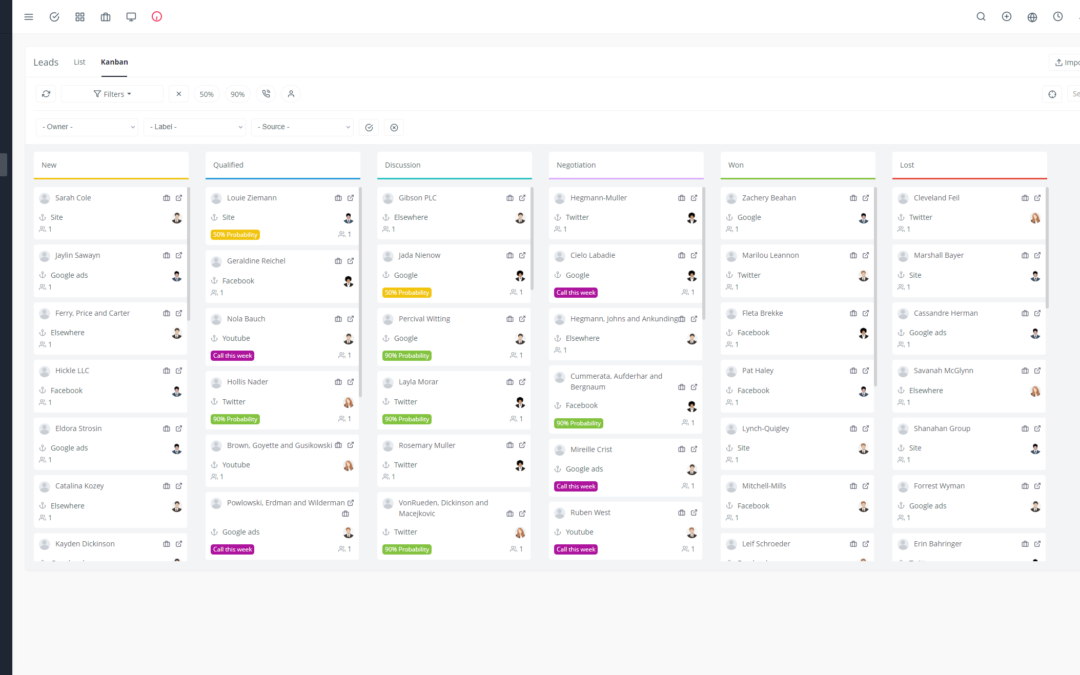Customer support is a crucial element of SaaS customer satisfaction. But with the constant increase in the volume of requests, support teams often face significant challenges: responding quickly to requests, maintaining a high level of quality, and managing costs. This is where artificial intelligence (AI) comes in, offering innovative solutions to revolutionize SaaS customer support.
Automating Customer Support Tasks ⚙️
AI can automate many repetitive, low-value tasks, freeing up support agents for more complex interactions. The most common examples include:
Answering frequently asked questions (FAQs): AI chatbots can provide instant, accurate answers to common customer questions.
Managing support tickets: AI can categorize tickets, prioritize requests, and automatically assign tickets to the appropriate agents.
Receiving inquiries: Chatbots can collect basic information about customers and their issues, speeding up the resolution process.
AI at the Service of Customer Satisfaction 🚀
AI brings a new dimension to the customer experience, improving satisfaction and loyalty:
AI Chatbots for Instant Support: Customers can get immediate answers to their questions 24/7 without waiting for a human agent.
Sentiment Analysis: AI can analyze the tone and emotions of customers in their messages, allowing agents to better understand their needs and tailor their responses.
Personalizing the Customer Experience: AI can provide personalized responses based on the customer’s history, behavior, and preferences.
Proactively Resolving Issues: AI can analyze data and identify potential problems before they arise, allowing them to be resolved quickly and efficiently.
The Impact of AI on Customer Support Performance 📈
Integrating AI has a significant impact on customer support efficiency:
Improved Speed and Efficiency: Automating and personalizing interactions allows agents to respond to requests faster and resolve issues more effectively.
Reduced Support Costs: Automating repetitive tasks and proactively resolving issues reduces the number of support tickets and optimizes resources.
Increased Customer Satisfaction: Instant support, personalization, and proactive issue resolution contribute to a positive customer experience.
AI: An Asset for SaaS Companies 💡
AI offers SaaS companies a multitude of opportunities to optimize their customer support operations:
Predictive Analysis of Customer Needs: AI can analyze data and predict customers’ future needs, allowing them to offer customized solutions and offers.
Creating AI-Powered Knowledge Bases: AI can contribute to creating comprehensive and easy-to-use knowledge bases, enabling customers to find the information they need quickly and easily.
Optimizing Support Processes: AI can analyze data and identify weaknesses in support processes, allowing them to be improved and optimized.
Adapting to Customer Preferences: AI can adapt to customer preferences, offering them personalized interactions and information.
Integrating AI into SaaS Platforms 🤝
Many SaaS platforms now integrate AI features, offering companies turnkey solutions to optimize their customer support:
Integration with SaaS Platforms: AI features integrate seamlessly with existing SaaS platforms, providing a comprehensive solution for customer support.
Detecting Security Issues: AI can monitor user activity and detect potential security issues, allowing for swift responses and prevention of incidents.
Automated Ticket Management: AI-based ticket management systems can categorize tickets, prioritize requests, and automatically assign tickets to appropriate agents.
24/7 Support Access: AI chatbots can provide assistance to customers 24/7, without service interruptions.
The Role of AI in Training Support Agents 📚
AI can also contribute to the training and development of support agents:
Continuous Training of Support Agents: AI can provide personalized training to support agents, helping them acquire new skills and improve their performance.
The Impact of AI on Employment in Customer Support 💼
AI automation of customer support tasks raises questions about the impact on employment. However, it is not about replacing human agents but rather empowering them to focus on more complex, value-added tasks.
AI allows support agents to focus on the following tasks:
Managing Complex Customer Interactions: Agents can focus on more complex interactions requiring human intervention.
Resolving Advanced Technical Issues: Agents can use their skills and expertise to solve complex technical issues.
Creating Support Content: Agents can create troubleshooting guides, help articles, and other useful content for customers.
The Ethical Challenges of AI in Customer Support 🤔
Using AI in customer support also raises ethical questions:
Data Privacy: It is crucial to ensure the privacy of customer data and comply with data protection regulations.
Transparency: It is important to maintain transparency about the use of AI and provide customers with clear information about interactions with chatbots.
Bias: It is essential to ensure that AI algorithms are not biased and do not favor certain customer groups.
The Future of SaaS Customer Support with AI 🔮
The future of SaaS customer support is closely linked to the evolution of AI. Future AI developments should further enhance the customer experience:
Conversational Artificial Intelligence: AI chatbots should become increasingly conversational and able to understand complex requests.
Advanced Predictive Analytics: AI should enable more accurate prediction of customers’ future needs.
Hyper-Targeted Personalization: AI should enable the delivery of customized customer experiences at an even more advanced level.
In conclusion, artificial intelligence is a powerful tool for revolutionizing SaaS customer support. Automation, personalization, proactive problem solving, and predictive analytics all contribute to improving efficiency, reducing costs, and increasing customer satisfaction. However, it is important to address the ethical challenges and ensure that the use of AI in customer support is transparent, responsible, and equitable.

